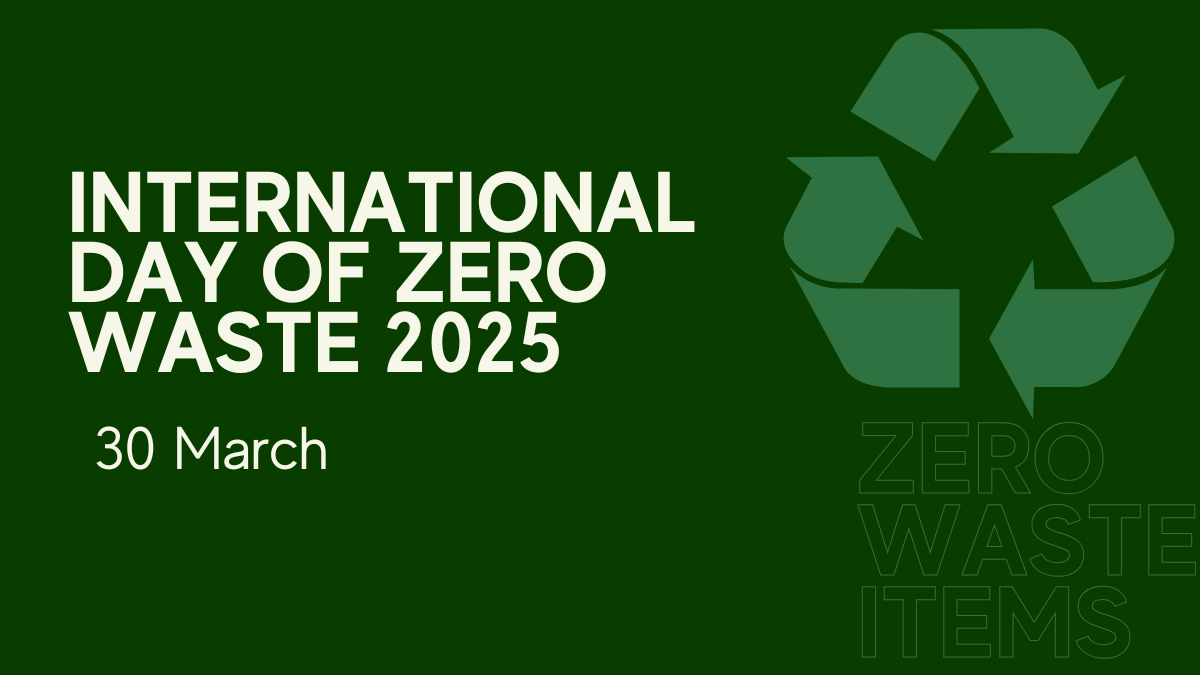The United Nations General Assembly adopted a resolution on 14 December 2022, declaring 30 March as the International Day of Zero Waste. Humanity’s unsustainable production and consumption practices are significantly harming the planet. The fashion and textile industry, known for its resource-intensive and waste-generating nature, is a major contributor to environmental degradation. This year’s International Day of Zero Waste focuses on addressing waste in the fashion and textile sector, promoting circular solutions under the theme “Towards Zero Waste in Fashion and Textiles.”
The Global Waste Crisis
Globally, households, small businesses, and public service providers generate an estimated 2.1 to 2.3 billion tons of municipal solid waste annually. This includes packaging, electronics, plastics, and food waste. However, the current waste management infrastructure is insufficient to handle this crisis:
- Around 2.7 billion people lack access to solid waste collection.
- Only 61-62% of municipal solid waste is managed in controlled facilities.
These alarming statistics highlight the urgent need for a global transition to sustainable waste management practices.
Fashion Industry’s Contribution to Waste
The fashion and textile industry is one of the most polluting industries globally. The sector has seen exponential growth in production and consumption, leading to severe environmental, economic, and social consequences.
Alarming Statistics:
- Textile production doubled between 2000 and 2015.
- The industry generates 92 million tonnes of textile waste annually.
- This is equivalent to a garbage truck full of discarded clothing being incinerated or dumped into landfills every second.
The rapid expansion of the industry, combined with the fast fashion model, has led to excessive waste generation, disproportionately affecting the Global South.
Transitioning to a Zero-Waste Approach
Sustainable Production and Circular Economy Solutions
To reduce waste, the fashion industry must undergo a systemic transformation towards a circular economy. This involves:
- Sustainable production practices that reduce waste during manufacturing.
- Recycling and repurposing materials to minimize waste.
- Eco-friendly textiles that have a lower environmental footprint.
Consumer Actions for Sustainability
Consumers play a vital role in reducing waste by adopting sustainable habits, including:
- Reusing, repairing, and recycling clothes.
- Moving away from fast fashion and investing in durable, high-quality clothing.
- Supporting brands that prioritize sustainable and ethical production.
Private Sector Responsibility
The private sector must implement sustainable solutions, such as:
- Designing durable, repairable, and recyclable products.
- Reducing production volumes and adopting circular business models.
- Using sustainable and biodegradable materials to curb environmental damage.
- Reducing chemical pollution and investing in technologies that support biodiversity.
Role of Governments in Driving Change
Governments have a crucial role in enforcing sustainability measures through:
- Implementing Extended Producer Responsibility (EPR) schemes.
- Regulating harmful chemicals in textile production.
- Investing in recycling infrastructure and sustainable waste management.
- Offering incentives for sustainable businesses and promoting eco-friendly practices.
International Day of Zero Waste – Background and Significance
The United Nations General Assembly adopted a resolution on 14 December 2022, declaring 30 March as the International Day of Zero Waste. This initiative was led by Türkiye, with the support of 105 countries, to promote zero-waste initiatives worldwide.
Co-Organizers and Purpose
The event is co-organized by:
- United Nations Environment Programme (UNEP)
- United Nations Human Settlements Programme (UN-Habitat)
- In cooperation with the Permanent Mission of Türkiye and the Zero Waste Foundation.
Connection to Sustainable Development Goals (SDGs)
Zero-waste initiatives align with the 2030 Agenda for Sustainable Development, particularly:
- SDG 11: Sustainable Cities and Communities
- SDG 12: Responsible Consumption and Production
These goals focus on reducing food loss, electronic waste, and natural resource depletion, ensuring a more sustainable future.



 TRAI Marks 29th Foundation Day 2026
TRAI Marks 29th Foundation Day 2026
 Central Excise Day 2026: Why 24 February...
Central Excise Day 2026: Why 24 February...
 World Peace and Understanding Day 2026: ...
World Peace and Understanding Day 2026: ...








